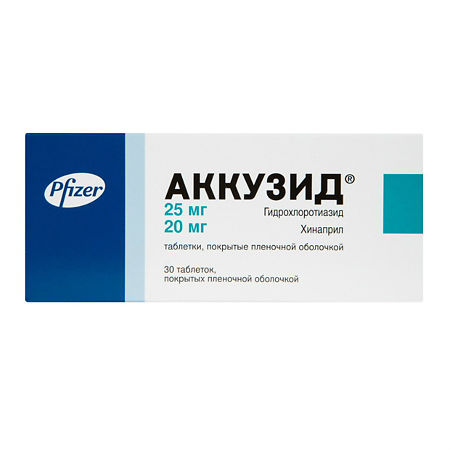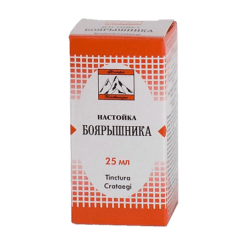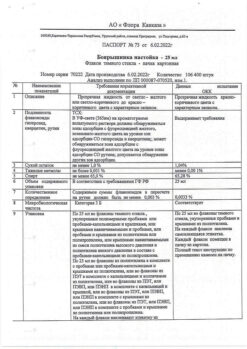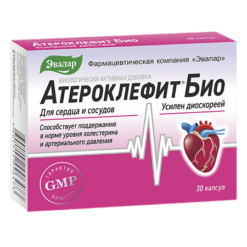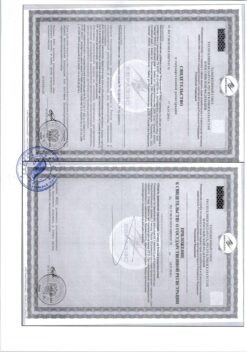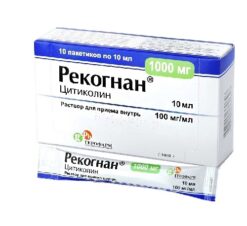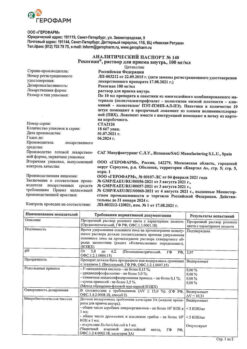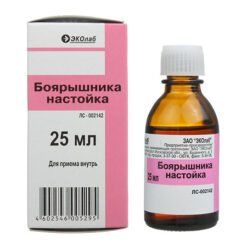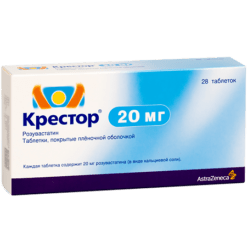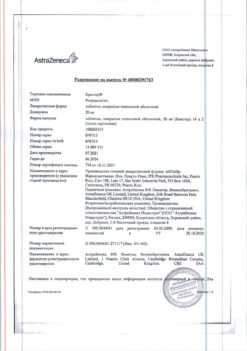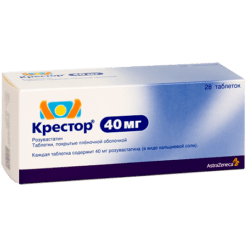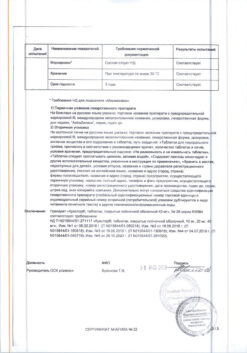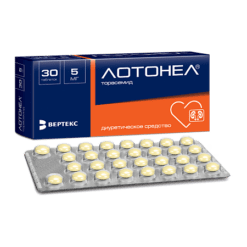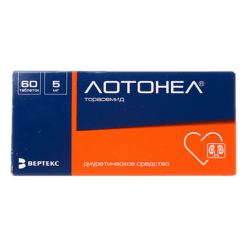No products in the cart.
Accuzid, 25 mg+20 mg 30 pcs
€1.00
Out of stock
(E-mail when Stock is available)
Description
Accuzid is a combination antihypertensive drug consisting of the ACE inhibitor quinapril and the thiazide diuretic hydrochlorothiazide in three different ratios. Quinapril is an ACE inhibitor. ACE catalyzes the formation of angiotensin II, which has a vasoconstrictor effect and controls vascular tone, including through stimulation of aldosterone secretion by the adrenal cortex. Quinapril inhibits circulating and tissue ACE and causes reduction of vasopressor activity and aldosterone secretion. Elimination of the negative effect of angiotensin II on renin secretion by a feedback mechanism leads to an increase in plasma renin activity.
At the same time, the decrease of BP is accompanied by a decrease of RAS and renal vascular resistance, while changes of HR, cardiac output, renal blood flow, glomerular filtration rate and filtration fraction are insignificant or absent. In addition, quinapril slightly reduces potassium loss caused by hydrochlorothiazide, which due to its diuretic action also increases plasma renin activity, aldosterone secretion, decreases serum potassium levels and increases its excretion with urine.
Hydrochlorothiazide is a diuretic that has a direct effect on the kidneys, increasing the excretion of sodium, chloride, water, and potassium and bicarbonate ions, and decreasing the excretion of calcium ions. Although the mechanism of antihypertensive action of diuretics is not fully understood, with their long-term use there is a decrease in ROS, probably associated with changes in sodium ion metabolism. Thus, the combination of quinapril and hydrochlorothiazide leads to a more pronounced BP reduction than therapy with each drug alone.
Pharmacological action
Accuzide has an antihypertensive effect.
Indications
Indications
Indications for the use of the drug Accusid are arterial hypertension in patients requiring combination therapy with quinapril and a diuretic.
Pharmacological effect
Pharmacological effect
Accuside is a combined antihypertensive drug that contains the ACE inhibitor quinapril and the thiazide diuretic hydrochlorothiazide in three different ratios. Quinapril is an ACE inhibitor. ACE catalyzes the formation of angiotensin II, which has a vasoconstrictor effect and controls vascular tone, incl. by stimulating the secretion of aldosterone by the adrenal cortex. Quinapril inhibits circulating and tissue ACE and causes a decrease in vasopressor activity and aldosterone secretion. Elimination of the negative effect of angiotensin II on renin secretion via a feedback mechanism leads to an increase in plasma renin activity.
In this case, a decrease in blood pressure is accompanied by a decrease in peripheral vascular resistance and renal vascular resistance, while changes in heart rate, cardiac output, renal blood flow, glomerular filtration rate and filtration fraction are insignificant or absent. In addition, quinapril slightly reduces the loss of potassium caused by hydrochlorothiazide, which, due to its diuretic effect, also increases plasma renin activity, aldosterone secretion, reduces serum potassium levels and increases its excretion in the urine.
Hydrochlorothiazide is a diuretic that has a direct effect on the kidneys, increasing the excretion of sodium, chloride, water, as well as potassium and bicarbonate ions, and reducing the excretion of calcium ions. Although the mechanism of the antihypertensive effect of diuretics has not been fully studied, with their long-term use there is a decrease in OPSS, probably associated with changes in sodium ion metabolism. Thus, the use of a combination of quinapril and hydrochlorothiazide leads to a more pronounced decrease in blood pressure than therapy with each drug separately.
Pharmacological action
Accusid has an antihypertensive effect.
Special instructions
Special instructions
Accusid may cause symptomatic arterial hypotension, but not more often than with monotherapy with both components of the drug. Symptomatic hypotension is rare during treatment with quinapril in patients with uncomplicated arterial hypertension, but it can develop as a result of therapy with ACE inhibitors in patients with reduced blood volume, for example, after treatment with diuretics, while following a diet with limited sodium intake, or during hemodialysis.
If symptomatic hypotension occurs, the patient should be placed in a horizontal position and, if necessary, given an intravenous infusion using 0.9% sodium chloride solution. Transient arterial hypotension is not a contraindication to further use of the drug, however, in such cases it is advisable to reduce its dose. In patients with chronic heart failure with or without renal failure, ACE inhibitor therapy for hypertension can lead to an excessive decrease in blood pressure, which may be accompanied by oliguria, azotemia and, in rare cases, acute renal failure and even death.
Treatment of such patients with Accusid should begin under close medical supervision and supervision during the first 2 weeks and with an increase in the dose of the drug. In rare cases, therapy with ACE inhibitors may be accompanied by the development of agranulocytosis and suppression of bone marrow hematopoiesis in patients with uncomplicated arterial hypertension, but more often in patients with impaired renal function, especially with connective tissue diseases. In these cases, the number of leukocytes in the blood should be monitored. Thiazide diuretics sometimes cause exacerbation of SLE.
Active ingredient
Active ingredient
Hydrochlorothiazide, Quinapril
Composition
Composition
1 tablet contains quinapril (in the form of hydrochloride) 20 mg,
hydrochlorothiazide 25 mg.
Pregnancy
Pregnancy
Contraindicated during pregnancy and children under 18 years of age.
Contraindications
Contraindications
history of angioedema as a result of previous therapy with ACE inhibitors;
children and adolescents under 18 years of age (the effectiveness and safety of the drug have not been established);
anuria;
hypersensitivity to the components of the drug;
hypersensitivity to sulfonamide derivatives.
pregnancy and lactation.
Side Effects
Side Effects
The most common side effects (>1%) when taking any combination of quinapril and hydrochlorothiazide were headache (6.7%), dizziness (4.8%), cough (3.2%), which was usually nonproductive, persistent and resolved after discontinuation of therapy, and fatigue (2.9%).
Overall, side effects were mild and transient and were independent of age, gender, race, and duration of therapy.
Interaction
Interaction
Use of tetracycline with quinapril reduces the absorption of tetracycline by approximately 28–37%. This is due to the presence of magnesium carbonate in the preparation as a filler. The possibility of such an interaction should be kept in mind when quinapril/hydrochlorothiazide is co-administered with tetracycline or other drugs that react with magnesium.
Lithium is not usually prescribed with diuretics. Diuretics reduce its renal clearance and increase the risk of toxic effects. Increased serum lithium concentrations and symptoms of lithium poisoning as a consequence of sodium loss under the influence of quinapril/hydrochlorothiazide were detected in patients concomitantly taking lithium and ACE inhibitors. The risk of lithium toxicity may be increased when using quinapril/hydrochlorothiazide. The simultaneous use of these drugs should be done with caution; Frequent monitoring of serum lithium levels is recommended. Concomitant use of a diuretic may increase the risk of lithium toxicity.
No clinically important pharmacokinetic interactions were observed when quinapril was used with propranolol, hydrochlorothiazide, digoxin or cimetidine. The anticoagulant effect of a single dose of warfarin (assessed by prothrombin time) did not change significantly with simultaneous administration of quinapril 2 times a day.
Alcohol, barbiturates or drugs – orthostatic hypotension may occur; antidiabetic agents (oral hypoglycemic agents and insulin) – it may be necessary to increase the dose of antidiabetic agents; other antihypertensive drugs – additive effect or potentiation of effect; GCS, adrenocorticotropic hormone – increased loss of electrolytes, especially hypokalemia; pressor amines (for example, norepinephrine) – there may be a slight decrease in the response to the use of these drugs; non-depolarizing muscle relaxants (for example tubocurarine) – it is possible to increase the response to the use of muscle relaxants; NSAIDs – in some patients, the use of NSAIDs may reduce the diuretic, natriuretic and antihypertensive effects of loop, potassium-sparing and thiazide diuretics.
Therefore, when using quinapril/hydrochlorothiazide and NSAIDs concomitantly, patients need careful monitoring to obtain the desired effect from Accuside; drugs that increase serum potassium levels – quinapril can reduce aldosterone levels, which in turn can cause potassium retention.
Therefore, the simultaneous use of quinapril and potassium preparations or preparations containing potassium salts should be cautious, with appropriate monitoring of serum potassium concentrations; anion exchange resins – the absorption of hydrochlorothiazide is impaired by the influence of anion exchange resins such as cholestyramine and colestipol. The simultaneous use of an anion exchange resin binds hydrochlorothiazide and reduces its absorption from the digestive tract to 85 and 43%, respectively.
Overdose
Overdose
There is no information about an overdose of Accusid during the treatment of people.
The main clinical manifestations of hydrochlorothiazide motor therapy are symptoms associated with loss of electrolytes (hypokalemia, hypochloremia, hyponatremia) and dehydration due to stimulation of diuresis. With concomitant use of digitalis preparations, hypokalemia may increase cardiac arrhythmia.
There is no information on specific treatment for quinapril/hydrochlorothiazide overdose. The effectiveness of hemodialysis and peritoneal dialysis is negligible.
Treatment is symptomatic.
Storage conditions
Storage conditions
At a temperature not exceeding 25 °C
Shelf life
Shelf life
3 years
Manufacturer
Manufacturer
USA
Additional information
| Shelf life | 3 years |
|---|---|
| Conditions of storage | At a temperature not exceeding 25 °C |
| Manufacturer | Pfizer, Puerto Rico |
| Medication form | pills |
| Brand | Pfizer |
Related products
Buy Accuzid, 25 mg+20 mg 30 pcs with delivery to USA, UK, Europe and over 120 other countries.

